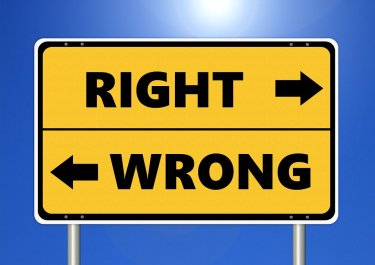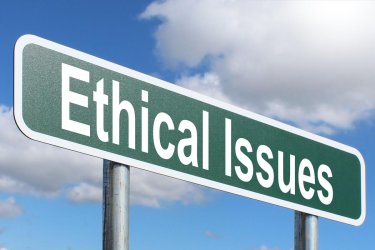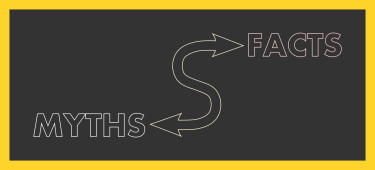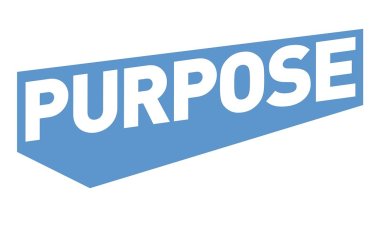As educators, we think we know what is right. We think we are ethical. Unfortunately, quantitative data suggests that we are not ethical, we do not know what is right, and we cannot apply basic ethical principles to the majority of ethical dilemmas we confront daily.

Having served as a coach and a teacher at all levels of public and university education, I have been an educator for over 50 years. I hold a baccalaureate from a liberal arts college, and a master’s and doctorate in physical education in which I read religion, history, and philosophy. I have been researching moral reasoning in competitive populations for over 35 years. Throughout my research and extensive work with educators (i.e. teachers, coaches), I will offer five myths[1] that work against an educators’ understanding of ethics and offer an argument that more education is necessary if we are to overcome the myths of ethical practice.

Myth 1: Ethics is common sense
As an ethics consultant, I travel globally and work with professional, governmental, educational, and judicial organizations to help them increase their ethical perspective. In other words, any organization with an ethical mission and objectives for achieving that mission will often seek someone versed in the process of learning ethics to help educate their people about ethical practice. In workshops, I often hear, “There is no reason to study ethics; it’s just common sense.” In fact, ethics is not common sense, and common sense is not so common[2]. Our humanness does not give a free pass to making good ethical choices. In reality, experience, including role models, environment, and education gives us the knowledge to make decisions of right and wrong (Stoll & Beller, 2006). In addition, even with all of those learned experiences, not everyone practices common sense. We live in a not so enlightened world. Role models of upright conduct and character are hard to find. Environments that support the right action in place of gaining advantage and winning are almost nonexistent. Moreover, education has veered from teaching ethics and the right conduct. Instead, relativism wins the day – the notion of right and wrong is relative by time, place, and society (Lumpkin & Stoll, 2012).
Myth 2: Ethics is a part of natural law[3] – We all know what is right
As a consultant, I will often hear: “We all know what is right and wrong since it is natural law.” This premise rests on the notion that all people have an innate sense that certain things are necessary for society to function, and laws exist for that to occur. Laws and rules give parameters to this nature of right and wrong. Unfortunately, environment, role models, and education in this relativistic age of morality have a negative effect on natural law –we really have a little notion as to what is right and wrong, and we bend rules to our benefit.

Myth 3: Our environment decides our fate in knowing right from wrong
I meet people who say: “I know what’s right. I am well educated. I come from a middle-class family, I was raised in the church, and I come from the right social class.” Then this upright person will sweep her hand toward all the people in the room and state, “Like I said, I know what is right, but I know why you are here, the majority of people in this room haven’t a clue about what’s right.” In other words, one group is superior and all others are unethical. Research debunks this myth (Bowers, 2014). Education and social class are no barriers to moral turpitude (e.g., Bernie Madoff, Larry Nassar, Jeffrey Epstein).
Myth 4: Doing ethics is “easy” – just follow the rules.
History has not been kind to the teaching of ethics; in fact, from my experience, most people think that learning ethics is simple and easy to teach. All one has to do is know the rules and the law. Most governing bodies, of which I am a consultant, fall into this myth. The members are required to attend “ethics” training in which rules or laws are discussed and then each member is required to finish an online ethics test to check their knowledge. An unfortunate consequence of this myth is that legal departments in organizations become the conscience of that organization. We do not think for ourselves about rightness and wrongness, we call the resident lawyer or compliance officer (i.e. “call legal”) (Shaw & Stoll, 2018b). In other words, what often happens in an organization is a member may learn the rules and laws. If they do not, which most do not, they know they can “call legal.” – this resident lawyer becomes the only voice of knowledge, and he/she can be woefully wrong in a moral sense.

Myth 5: We learn from our mistakes – Thus we learn to be ethical
If only this were true. Some people may learn from their mistakes if they accept they are at fault. However, in my experience, finding self-wrong and realizing the error of one’s moral decision-making is not easily learned. As a consultant, I am often brought in as the punitive instrument charged to whip these miscreants into better people – seldom do they learn from their mistakes. What they do learn is how to play the victim (“It was not my fault”), or how to dodge responsibility (“I really did not know the rules” or “If you had been in my shoes, you would have done the same thing”).
Overcoming the Myths of Ethical Practice
Unfortunately, the very nature of being human is a hindrance to ethical behavior. Cheaters will always be with us; all of us will be tempted to cheat; and no human being is above cheating (Bowers, 2014). However, two conditions exist to support better ethical behavior.

Condition 1: What is the purpose of what we are doing?
The purpose lies in the mission of the organization and one’s personal mission. A mission should be thoughtful and immersed in moral values more than social values. Moral values – the relative worth we place on human relationships – should be the focus of the mission. Words like honesty, fair play, integrity, respect, and responsibility should be explicit within the mission. Social values – the relative worth we place on the work ethic or the benign social fabric of the sport, the classroom, athletics – are important, but not without the moral values guiding those social values. Typical social values are hard work, teamwork, dedication, sacrifice, intensity, and loyalty.
In education, sport, and athletics the purpose should have a moral quality of good about it – not a social quality of what is good for my team and me. Those moral qualities (fair play, honesty, justice, respect) must exist and be fairly and equitably distributed to all participants (Agency, 2019; Frankena, 1973). If the moral purpose is valued and followed, ethics will exist. However, following the mission will only occur if leadership expects it. Leaders need to teach the mission. There should be an expectation within the organization to follow the mission and consequences must occur for those who do not honor the mission or goals that support it.

Condition 2: Ask the “Three Questions of Right Choice”
A specific tool that is helpful in teaching ethics and making any ethical decision is called the “The Three Questions of Right Choice.” In any ethical decision, three basic questions should be asked before acting on a moral dilemma. What is the right thing to do? Why is it right? What social moral perspectives support our response?
- What is the right thing to do? A simple question, with a difficult response. The right thing is not about what is right for the individual; the right thing is about what is right for the organization and group.
- Why is it right? The reasoning behind choosing the right is tied indelibly to what is right. We do the right because we agreed to follow the rules or the guidelines of the organization.
- What social moral perspectives support our response? Our history and culture inform our moral decision. In sport, we have rules that constitute the game, and we have sportsmanship rules as to how we play the game. When we agree to play by the rules, we agree to follow the intention and purpose of the rules.
In Sum
As a professional, we have a duty and obligation to know the ethical parameters of our profession and meet that obligation. Ethics is not about us. Ethics has to do with us as we agree to honor the mission and follow the rules. Anything less is a violation of our responsibility and cheating our ethical responsibilities.
References
Agency, W. A. (2019). Athlete Bill of Rights. Montreal: WADA.
Beller, J. M., & Stoll, S. K. (1998). Sports as education: On the edge. New York: Columbia University: Teachers Press.
Bowers, L. (2014). Chief Scientific Officer, USADA. (S. Stoll, Interviewer)
Frankena, W. K. (1973). Ethics. Englewood Cliffs, NJ: Prentice-Hall.
Lewis, C. S. (1952). Mere Christianity. London: Geoffrey Bles.
Lumpkin, A., & Stoll, S. (2012). Responsible conduct: The ethics of it all in life and research. The Journal of Values-Based Leadership, VI(1), 66-79.
Shaw, A. H., & Stoll, S. K. (2017, October 12). Disability: The interconnection of beauty, body, and perception. Reno, NV: Western Society of Kinesiology and Wellness.
Shaw, A. H., & Stoll, S. K. (2018b, October 11). The error in reasoning when using disability policy: “Go to legal- they will tell us what to do. Reno, NV: Western Society of Kinesiology and Wellness.
Stoll, S. K., & Beller, J. M. (2006). Ethical dilemmas. In R. Lapchick, New game plan for college sport. Rowman & Littlefield Publishers.
Footnotes
[1] As in any discussion, my choice of four reasons – is only my choice. Other good reasons also exist.
[2] One of my undergraduate students gave this argument that I think is very powerful. Having common sense is not innate; we just do receive this “common sense” because we are human.
[3] I am using natural law here as C.S. Lewis did in his argument that ethics is tied to a basic natural law that all persons know. In his seminal work, Mere Christianity (Lewis, 1952), Part I focuses on this argument.
